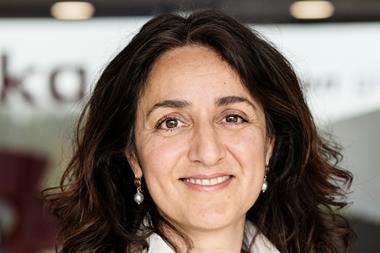Ethos Foundation, along with seven other Swiss pension funds, is pressing Credit Suisse to set up a special audit to look into the Greensill case and the information leaks that revealed the bank had criminals, autocrats and alleged war criminals as clients.
Separately, ShareAction, which is coordinating a climate change-focused shareholder resolution at the bank, said the shareholders were pressing ahead with the resolution after Credit Suisse made minimal concessions in response (see more below).
The pension funds requesting clarity from the lender on the Greensill supply chain funds and the “Suisse Secrets” as the leaks were dubbed, include Publica, Bernische Pensionskasse, the Pensionskasse of the city of Zurich PKZH, Pensionskasse Post, Inter-Company Professional Provident Fund (CIEPP), Bernische Lehrerversichergungskasse and Cap Providence.
The shareholder resolution requesting the special audit is now on the agenda of the bank´s annual general meeting on 29 April.
In March 2021 Credit Suisse closed four Supply Chain Finance Funds (SCFFs) with assets worth $10bn linked to the insolvent Greensill Capital.
Credit Suisse’s board had commissioned an independent external investigation into the SCFFs to law firm Walder Wyss and Deloitte.
The results of the investigation were presented to the board of directors at Credit Suisse and a report was shared with the financial supervisory authority FINMA, the bank said, but it decided not to publish the report for fear of hurting the recovery of funds.
“While we understand that the publication of the entire report may pose confidentiality issues, we believe that shareholders are entitled to know the main conclusions of this investigation as well as the measures that have been or will be taken to prevent such cases to repeat in the future,” Ethos’s chief executive officer Vincent Kaufmann said.
Credit Suisse has agreed to reply to questions posed by Ethos on Greensill and the Credit Suisse “secrets” and publish them before the AGM, but an agreement has not been reached on mandating a third-party auditor to check certain details, which would have prompted shareholders to withdraw their demand to set up a special auditing process.
Credit Suisse has excluded a discharge from responsibilities of the members of the executive board at the AGM in connection with the supply chain funds.
However, it cited “the ongoing recovery process” for the SCFFs, legal and regulatory complexities, as a reason to consider “detrimental” a special audit on Greensill and the Credit Suisse secrets, it said.
The board therefore recommended that shareholders should not approve this specific proposal, it added.
An anonymous whistleblower leaked data on the Credit Suisse secrets to the Süddeutsche Zeitung. The leaks claimed that for years the lender had criminals, corrupt autocrats, alleged war criminals, human traffickers, and drug dealers as clients. Credit Suisse has rejected the allegations.
Clash over climate policy
In its AGM notice published yesterday, Credit Suisse said it recommended shareholders vote against the climate change shareholder resolution brought by Ethos, ShareAction and others. The board said it supported the proposal’s objectives and strategy disclosure, but that in its view these disclosures did not require an amendment of the articles of association.
It also said it had decided to introduce new restrictions related to the financing of oil sands, Arctic oil and gas, and deep sea mining, and would offer an advisory vote on its sustainability report to shareholders in 2023. It added that an amendment of its articles of association would become necessary next year, anyway, due to new Swiss rules, so that shareholders would be able to vote on certain non-financial reporting starting at the 2024 AGM.
In a response, ShareAction said the bank was offering “important steps forward reflecting the positive influence of shareholders and the bank’s willingness to listen”, but that the commitments remained insufficient for investors as they failed to cover the bank’s main financing and exposures to high-carbon assets.
The shareholders are keeping their climate resolution on the ballot, ShareAction said.
Susanna Rust
The latest digital edition of IPE’s magazine in now available




















